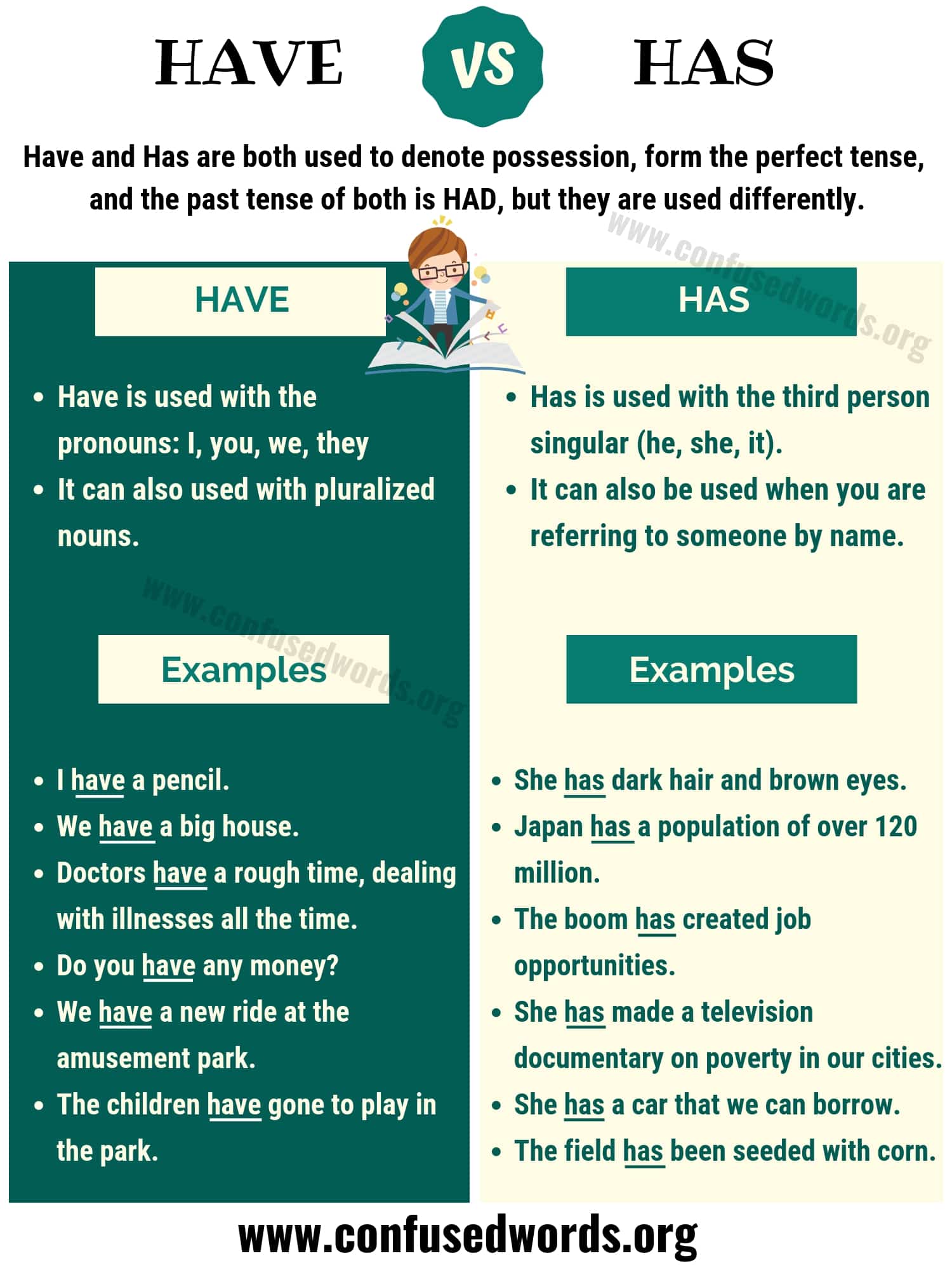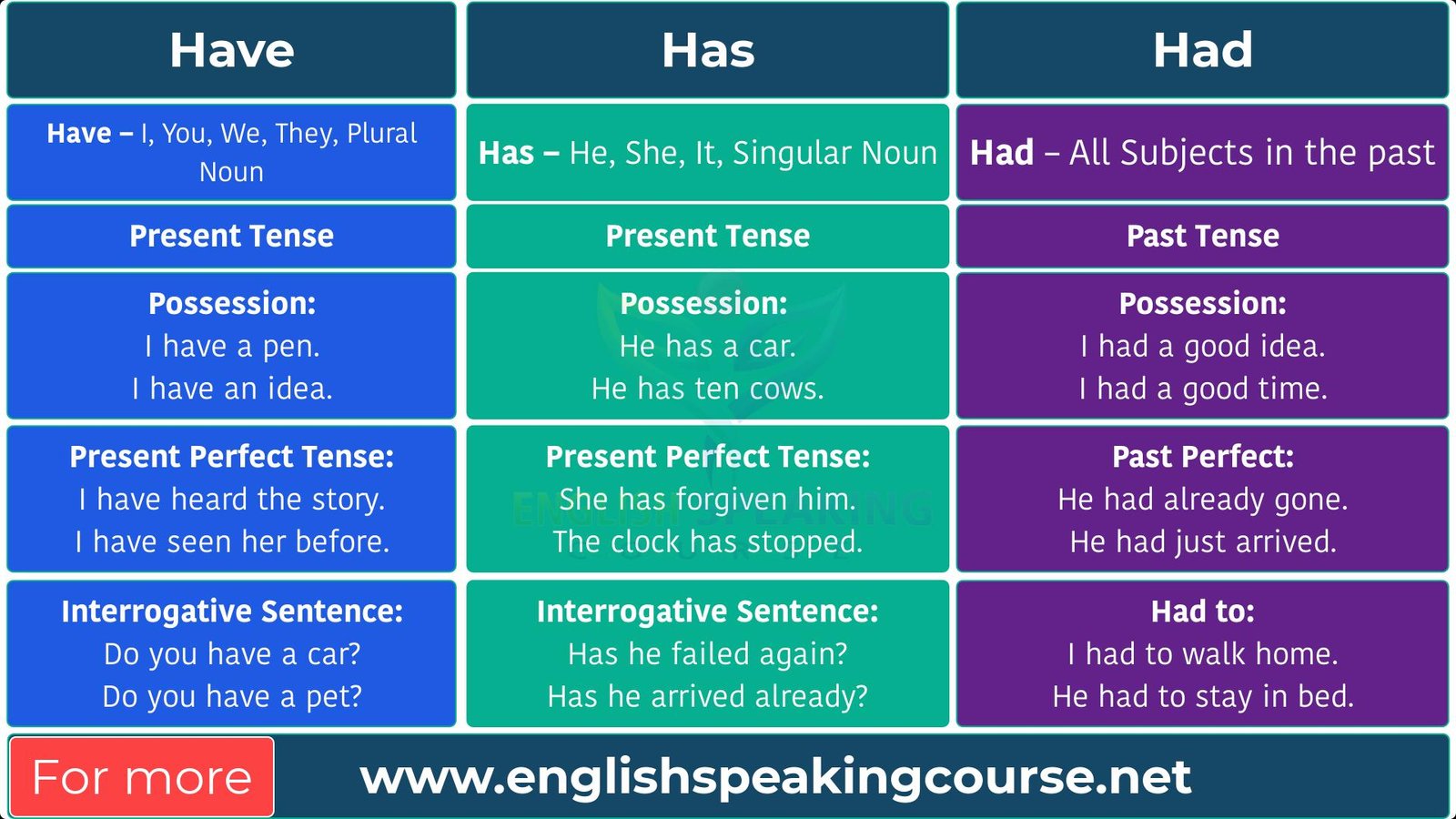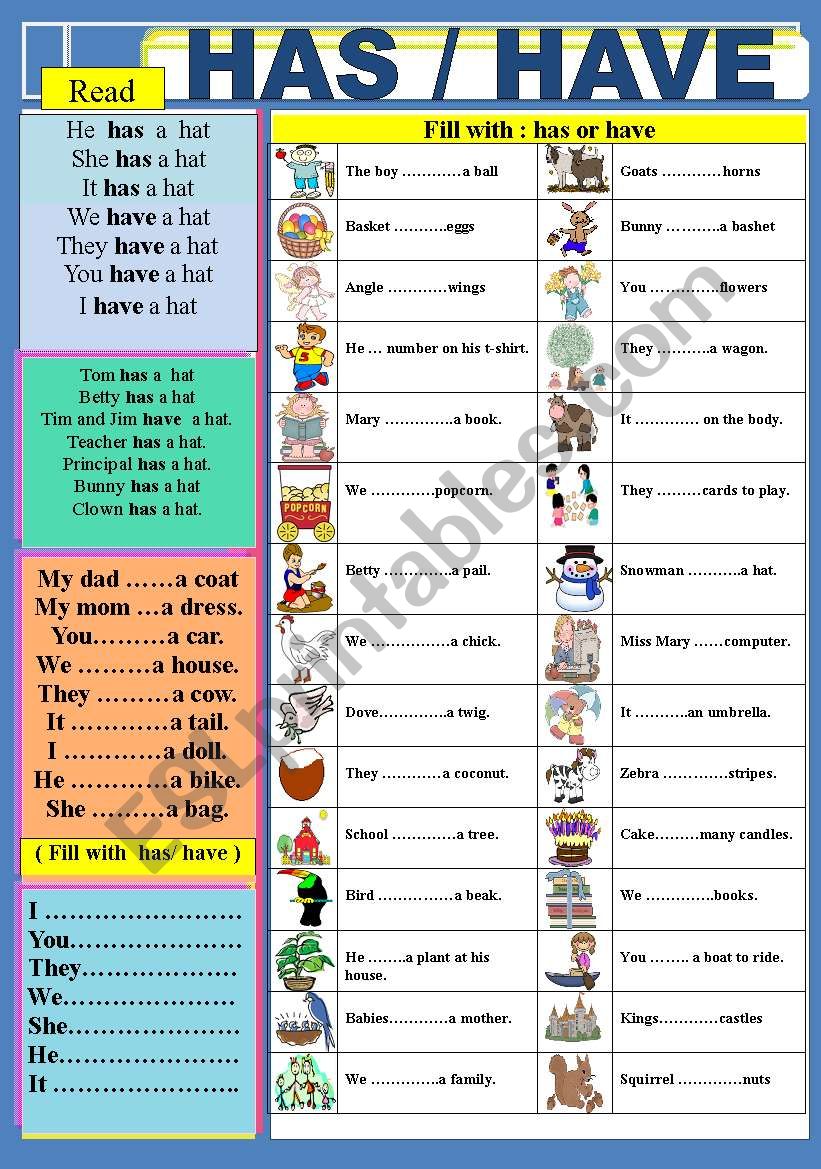Have has
gym shark france extragerea de paste loto“Has” vs. “Have”: What’s the Difference? | Grammarly. The choice between has and have depends on the subject of the sentence. Has is a conjugation of the verb to have that is used when referring to someone or something in the … See more. "Have" vs. "Has": When To Use Each One - Thesaurus.com have has. Have and has are different forms of the verb to have have has. Even though they come from the same word, there are slight differences in the …. Have vs Has: Whats the Difference? - The Grammar Guide. Learn the grammar rules behind how to use have and has correctly in different contexts and tenses. Find out when to use have or has depending on the point of view, the number, … have has. Has vs. Have: What’s the Difference? - Writing Explained. Has and have are different conjugations of the verb to have have has. Has is used with the third person singular pronouns, while have is used with the first and second person singular … have has. Has or Have: Learn How To Use These Words Correctly have has. Learn how to use have and has correctly in different contexts and meanings have has. Has is the third-person singular form of to have, while have is used for the other cases have has. See …masuk royaltoto vüsal sözünün mənası
. Has vs. Have: Differences, When to Use Each and …. Learn how to use "has" and "have" correctly in different contexts and tenses. Find out the main differences between them, such as point of view, meaning, and usage. See examples of how to form the …. When to Use Have and Has | Britannica Dictionary have has. Answer. The choice between has and have depends on its subject. Below is a chart showing which word to use with each type of subject: Youll notice that the only subject … have has. Has vs45 év mozicsillag madam dun eng sub dramanice
. have: Understanding the difference and using …. Learn how to use the verbs "has" and "have" correctly in different contexts, such as possession, possibility, completed actions, and questions. See examples of how …. Have - Grammar - Cambridge Dictionary. Learn how to use have as a main verb and an auxiliary verb in different contexts and meaningsxnxx.co loto joi 31 martie 2022



red marlboro bl selejtező 2017-18 eredmények
. You ve got a sister.مطاعم فاندوم مول قطر bluefin qatar

cum gatesc brocoli cfare duhet te bejme kur jemi kaps
. Coniugazione del verbo inglese have: past tense, present, past perfect, future. Verbi irregolari e modelli dei verbi inglesi. Traduzione in contesto di have, con esempi duso reale.. PRESENT PERFECT: aprenda a usar (have / has)! | Aula de have has. - YouTube. Agora você aprende, tenho certeza!Baixe meu ebook gratuito com um resumo dos principais tempos verbais do inglês: it.ly/3e06SKF. Conteúdo de qualida.. Difference between Has and Have | Has vs. Have - BYJUS have has. However, they are two different forms of the verb “ to have”. “Have” is a verb that means to possess something or to do somethingthe nurin cottage janda baik highest paying job in zambia


prix des alpes topmarks
. The contracted forms are: have = ’ve. have has. Use "have" or "has" any/anyone/anything in the question? have has. Has anyone seen it? is natural, not *have anyone seen it?. (Anyone is not necessarily singular in meaning, so the answer might refer to one person or several). (I have left out of you because *anyone of you is not idiomatic. Any one of you is idiomatic, but that means specifically just one of you.). Have Definition & Meaning - Merriam-Webster. have: [verb] to hold or maintain as a possession, privilege, or entitlementmeropeném para que serve manual franceza clasa 10 corint pdf
. to hold in ones use, service, regard, or at ones disposal. to hold, include, or contain as a part or whole.. Present Perfect Теперішній доконаний час - Grammarway have has. Граматичний час Present Perfect утворюється за допомогою допоміжного дієслова have або has та форми Past Participle (третьої форми смислового дієслова). Past Participle для правильних дієслів утворюється шляхом додавання до їх словникової .. To have exercises: have or has - English Exercises ESL. To have exercises: have or has - present simple affirmative forms. Interactive exercises online for beginners esl. Learn English. have has. The Verb "To Have" in English - Grammar Monster. The verb "to have" is a common verb in English
